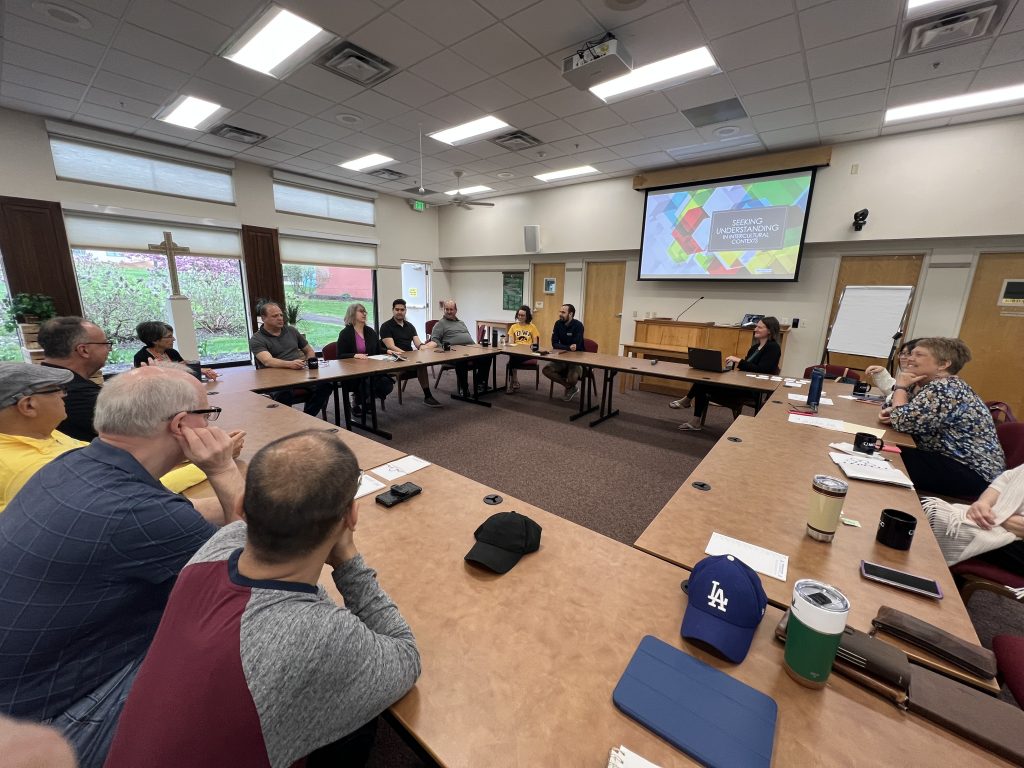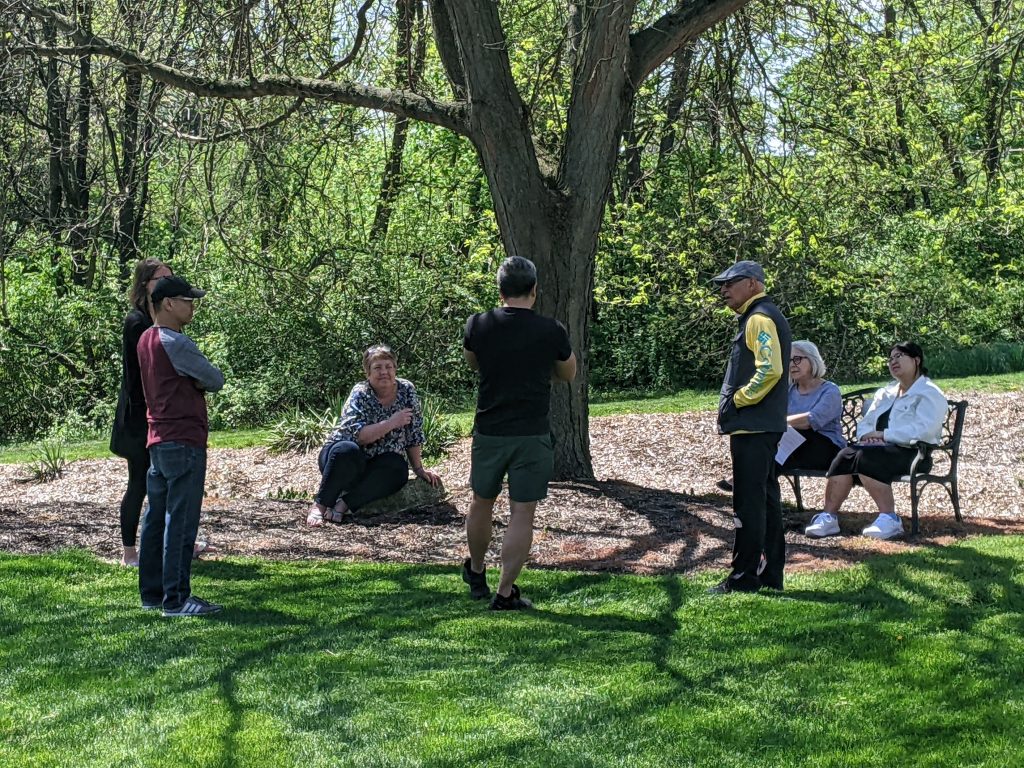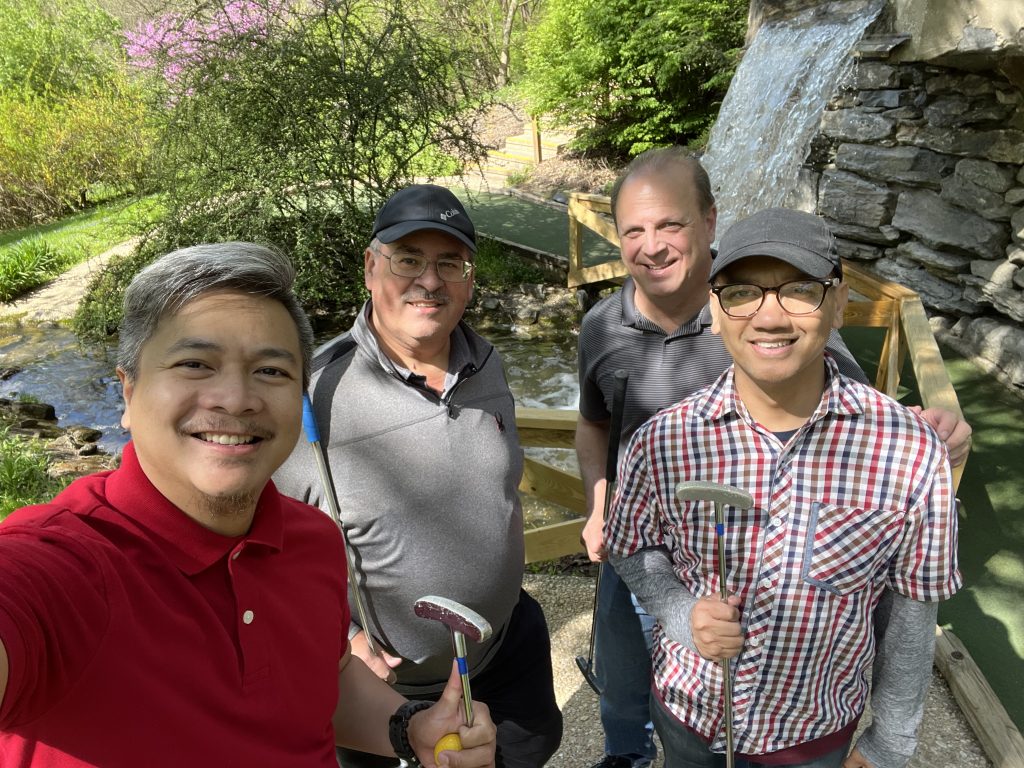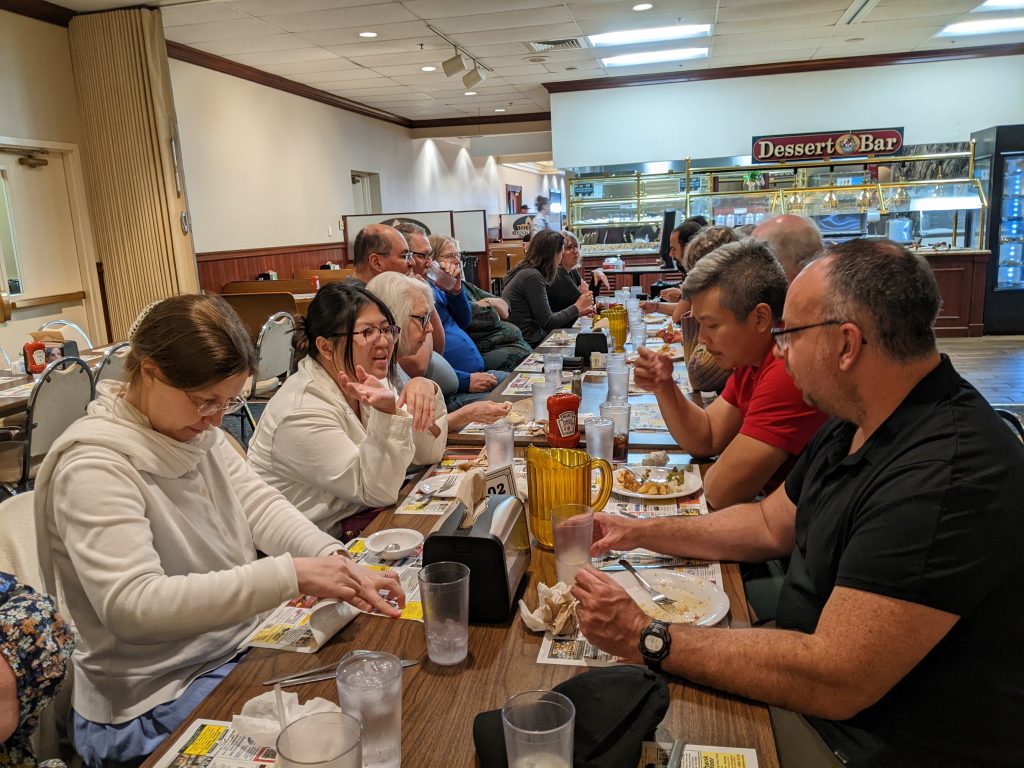by Eileen Kinch
On April 16-18, Mosaic staff gathered at Mennonite Central Committee’s Welcoming Place in Akron, PA. The focus of the staff retreat was training to understand differences in cross-cultural communication, power dynamics, and conflict. As Mosaic Conference becomes more intercultural, staff need to be equipped to work through and across cultures.
Culture and Cultural Identity

Staff spent time considering their cultural identities. Danilo Sanchez, Leadership Minister for Intercultural Transformation, introduced a few tools and frameworks for understanding the way cultures work. One was that of an iceberg: there are highly visible aspects of culture, such as food and language, but there are also parts that are below the surface, such as how a culture conceives of time or family roles.
When we become aware of how our own culture works, we can find entry points to understand another culture. In some cultures, people accept the decisions of their leaders, and in other cultures, people feel empowered to make changes. If we know this, we can better understand why someone from a different cultural group may not respond the same way we do.
Worldviews
Emily Ralph Servant, Leadership Minister for Formation, invited staff to think about common sense and what that means. Common sense assumes a particular understanding of the world around us; often something is just the “right way” to act or react. And yet, common sense is a product of cultural conditioning.
Staff also learned that some cultures have an honor worldview. If someone acts out of harmony with the group values, then the entire community experiences dishonor. Other cultures have a justice worldview. This culture tends to focus on the individual. To be fair and just, these cultures produce written rules. If someone violates a rule, then the person needs to make restitution before being accepted back into society.

Power
Another aspect of cross-cultural communication is power. Noel Santiago, Minister of Missional Transformation, pointed out that power can take different forms (for example, visible or invisible). Power can be acted out in different spaces, and power can happen at different levels. If we encounter a conflict, we can do a power analysis and identify who is trying to be heard and what those voices are asking for.
Staff considered power in Mosaic. Someone observed that communication is the most powerful tool Mosaic has. Staff wondered out loud about different types of communication in Mosaic and how they might best be used. Email is not always the best communication tool to reach all people. Sometimes physical presence, personal involvement, or personal relationships are the best ways to communicate and therefore carry the most power.

God’s Power
Staff also considered God’s power in Scriptural passages. In Acts 1:1-13, the apostles received power from Jesus before he ascended into heaven. One thing that staff noticed is that Jesus promised power from the Holy Spirit to be witnesses (1:8). The apostles were to receive power to tell people about Jesus, not power to restore its political kingdom. Bearing witness becomes the primary identity for the apostles.
Staff wondered: What does bearing witness mean for the apostles? What does it mean for Mosaic staff? It may not mean a singular focus on conference unity, but rather on witnessing to God’s power at work in Mosaic relationships.
Staff took time to build and strengthen relationships through fun and informal times during the retreat. Some went mini golfing while others hiked a rail trail, and one group explored culture in Lancaster County by visiting local stores. Staff ate together, prayed together, and laughed together. The staff hopes that our stronger relationships will enhance Conference-wide relationships as well.



Eileen Kinch
Eileen Kinch is a writer and editor for the Mosaic communication team. She holds a Master of Divinity degree, with an emphasis in the Ministry of Writing, from Earlham School of Religion. She and her husband, Joel Nofziger, who serves as director of the Mennonite Heritage Center in Harleysville, live near Tylersport, PA. They attend Methacton Mennonite Church. Eileen is also a member of Keystone Fellowship Friends Meeting in Lancaster County.
